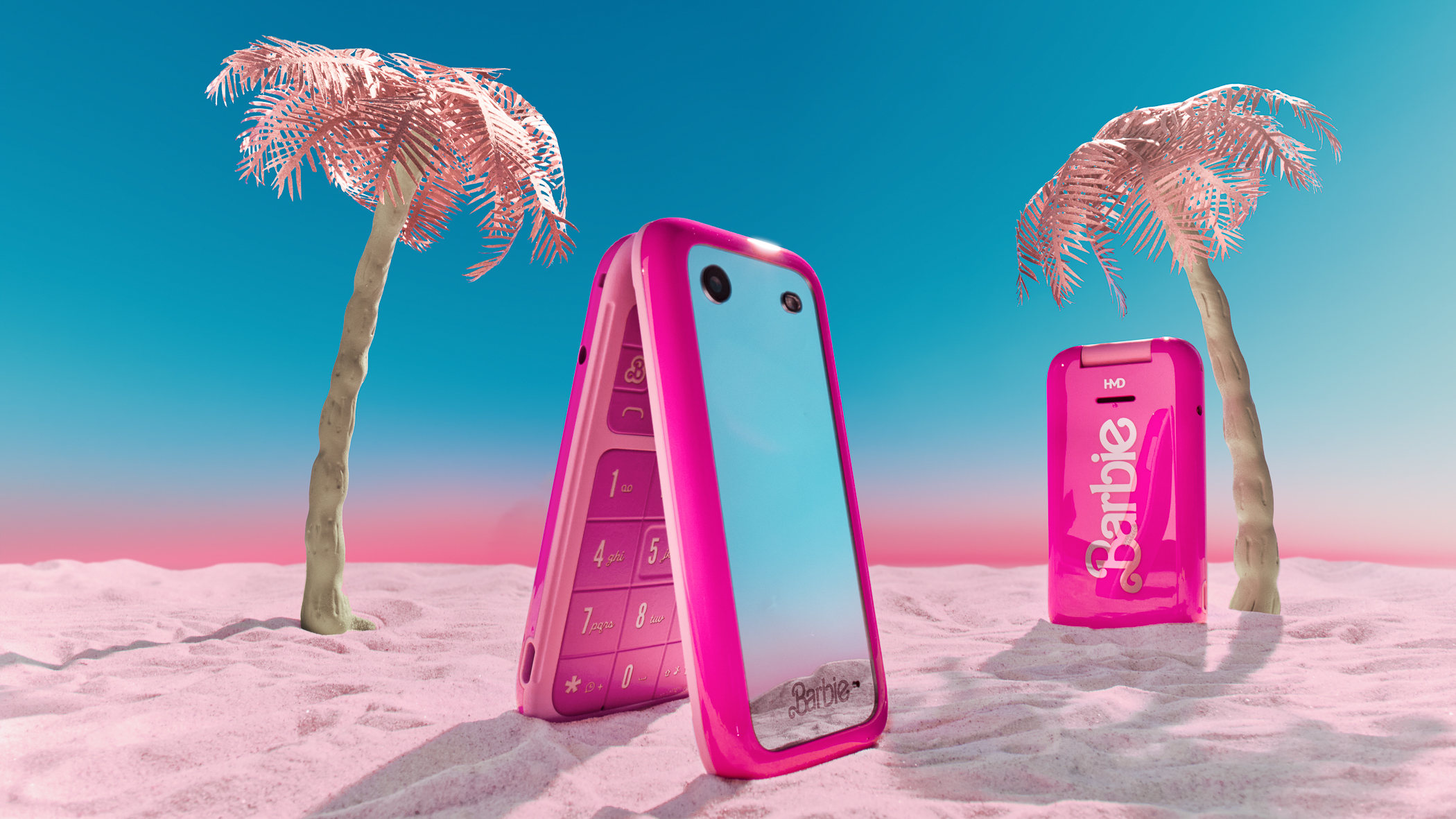
What do we make of the HMD Barbie Phone? Long promised, this little flip device was finally released to the public at the end of August 2024. This piece of pink tech comes from a company that’s promised to do its utmost to address the issues of smartphone and social media addiction, courtesy of its ongoing Better Phone Project. HMD’s CMO Lars Silberbauer had previously told us that the HMD Barbie Phone would have no social media functionality; in industry parlance, it’s a ‘feature phone’ (you might otherwise know it as a ‘dumb phone’).
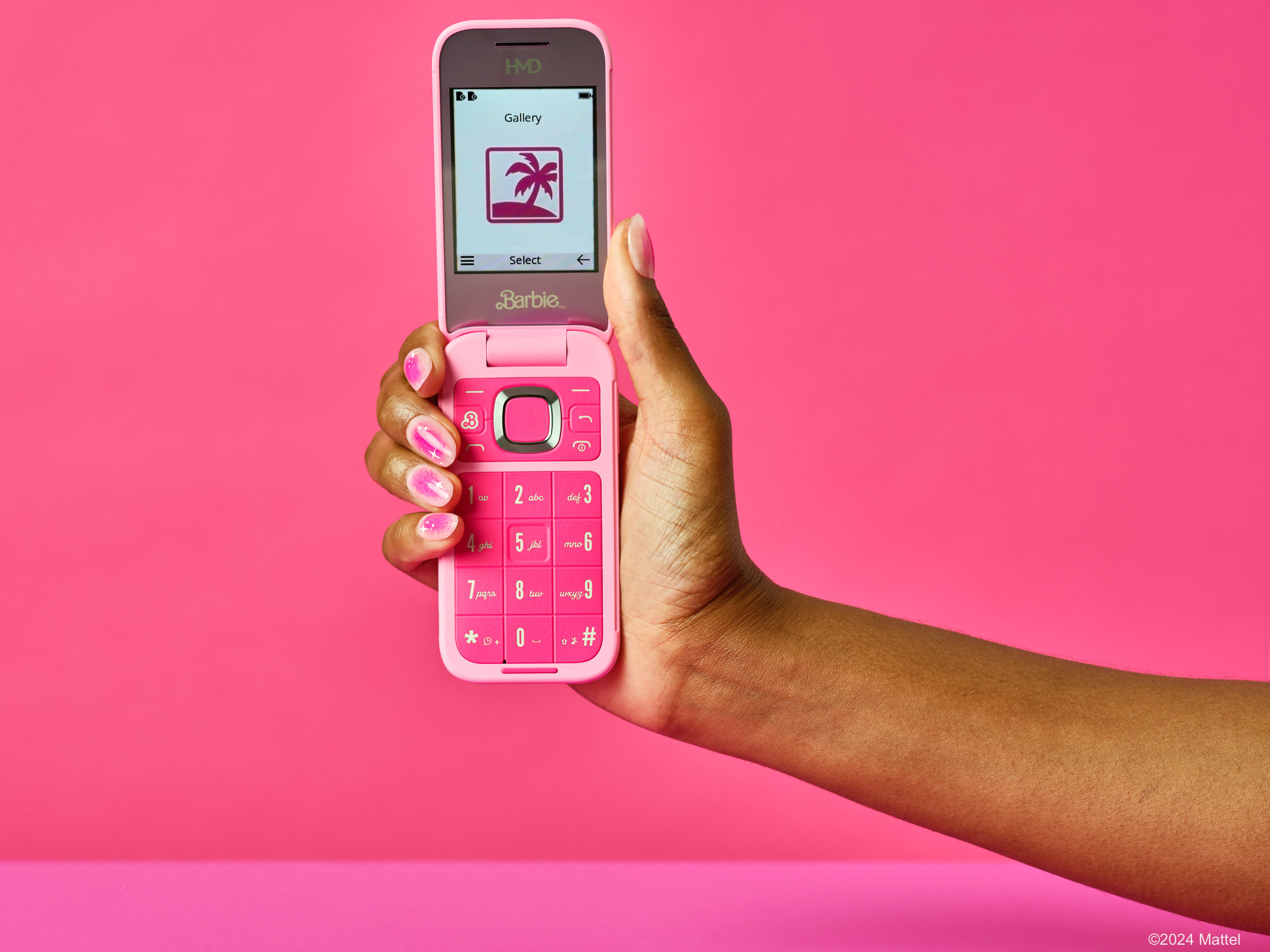
Make no mistake, this is an unashamedly naked branding opportunity, rather than a serious attempt to address the issues of digital distraction. Yes, HMD is pushing the Barbie Phone with the strapline ‘more beach, less browsing’, and maybe a few millennials will sling one in their weekend bag as a quick, quasi-ironic mode of digital detox. Perhaps if the phone had broken cover around the same time as Greta Gerwig’s Barbie film, there might be more take-up amongst the chattering classes, but the brief yet vivid association between the Barbie brand, empowerment and patriarchy-smashing has faded a little.
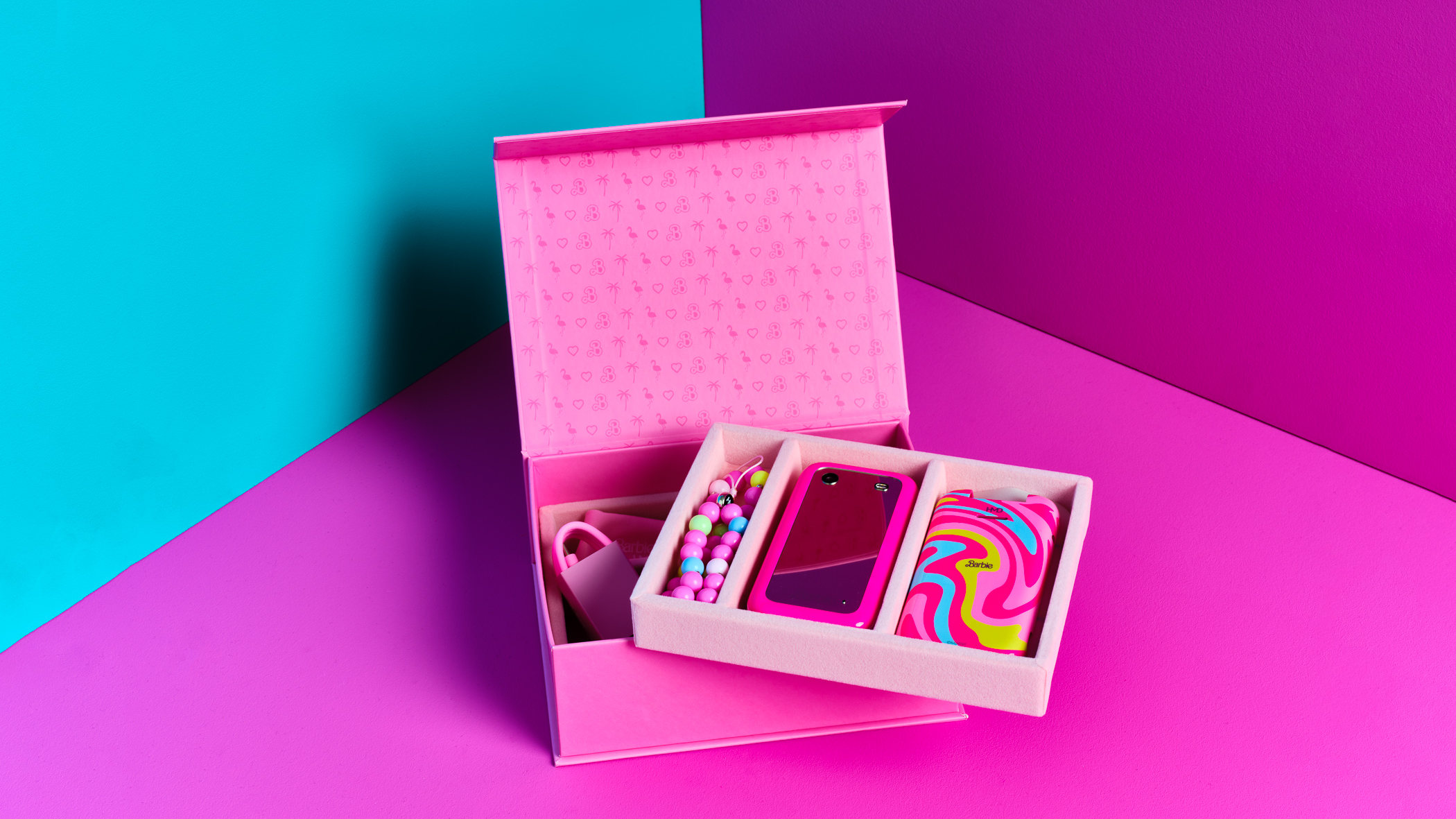
Instead, we predict the primary customers will be children. That’s not necessarily a bad thing, given that kids do need phones every now and again. What they definitely don’t need is the angst and anxiety served up with modern social media, hence HMD’s disavowal of any smartness whatsoever. Instead, the Barbie Phone offers calling, SMS, and a very basic 0.3 megapixel camera.
This provides ‘authentic Y2K style images’, which might be a tough sell to those immersed in the world of swift, endless filters and AI editing. The flip form factor has an interior and exterior screen and is properly pocket-sized and compact when closed. The onboard mp3 player and FM radio are much more of a selling point, especially when paired with an additional MicroSD card to boost the storage from a 1990s-style 64mb up to a rather more contemporary 32GB.
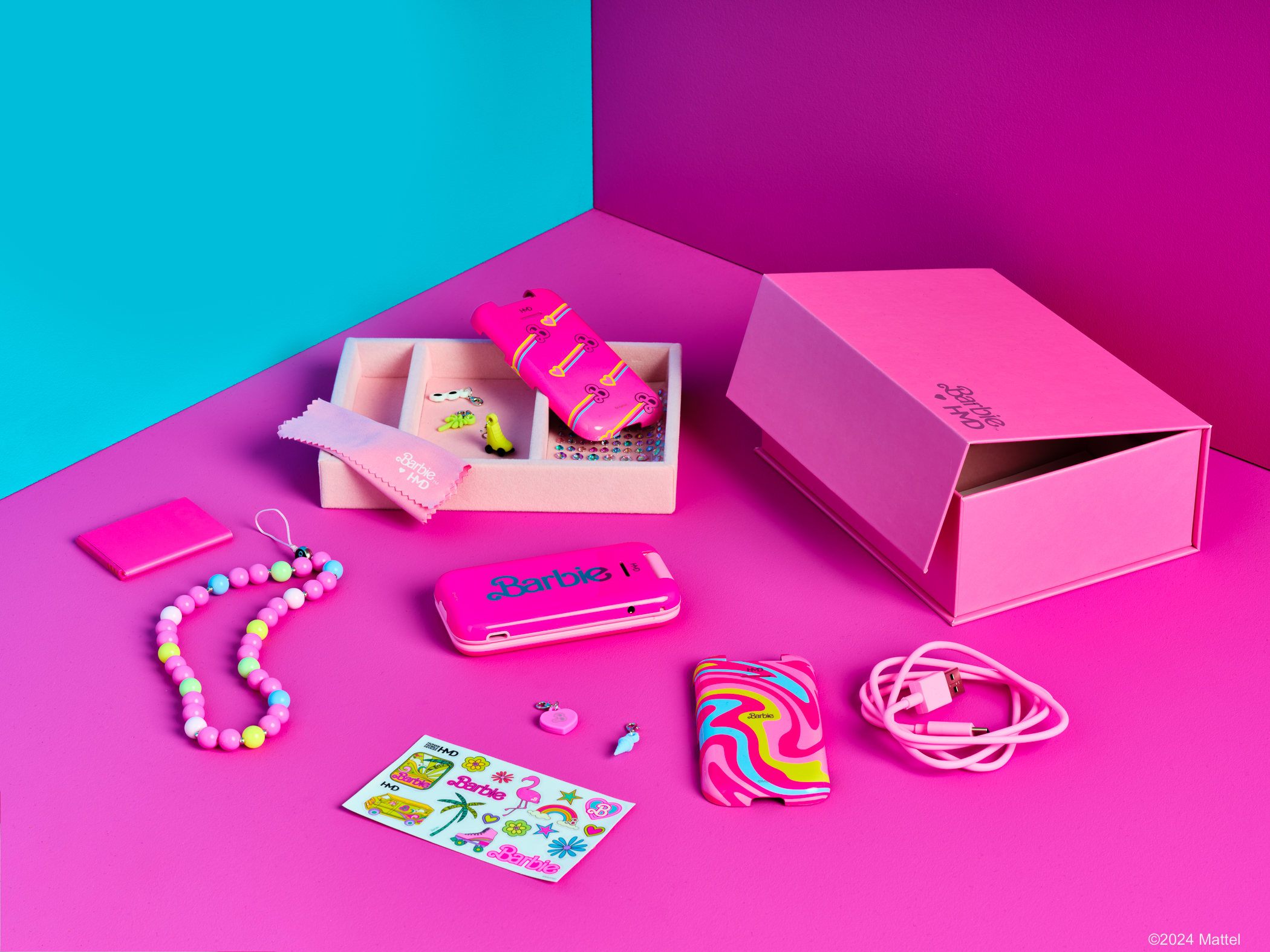
HMD has gone all-out on branding and features that reference the dazzling doll and her famous posse. For example, turn on the phone and it says, ‘Hi Barbie’, and you’ll also see a (faintly creepy) missed call notification from Ken. The packaging scores a solid bullseye on the target demographic, with a clutch of stickers, a beaded phone strap with charms, and replaceable covers, all set within a presentation box. There’s also a mirrored front (the closest to a selfie camera you’ll get), and on screen there’s a bespoke user interface with Barbie icons and apps, custom alarms and ringtones. Oh, and the charging cable is pink.
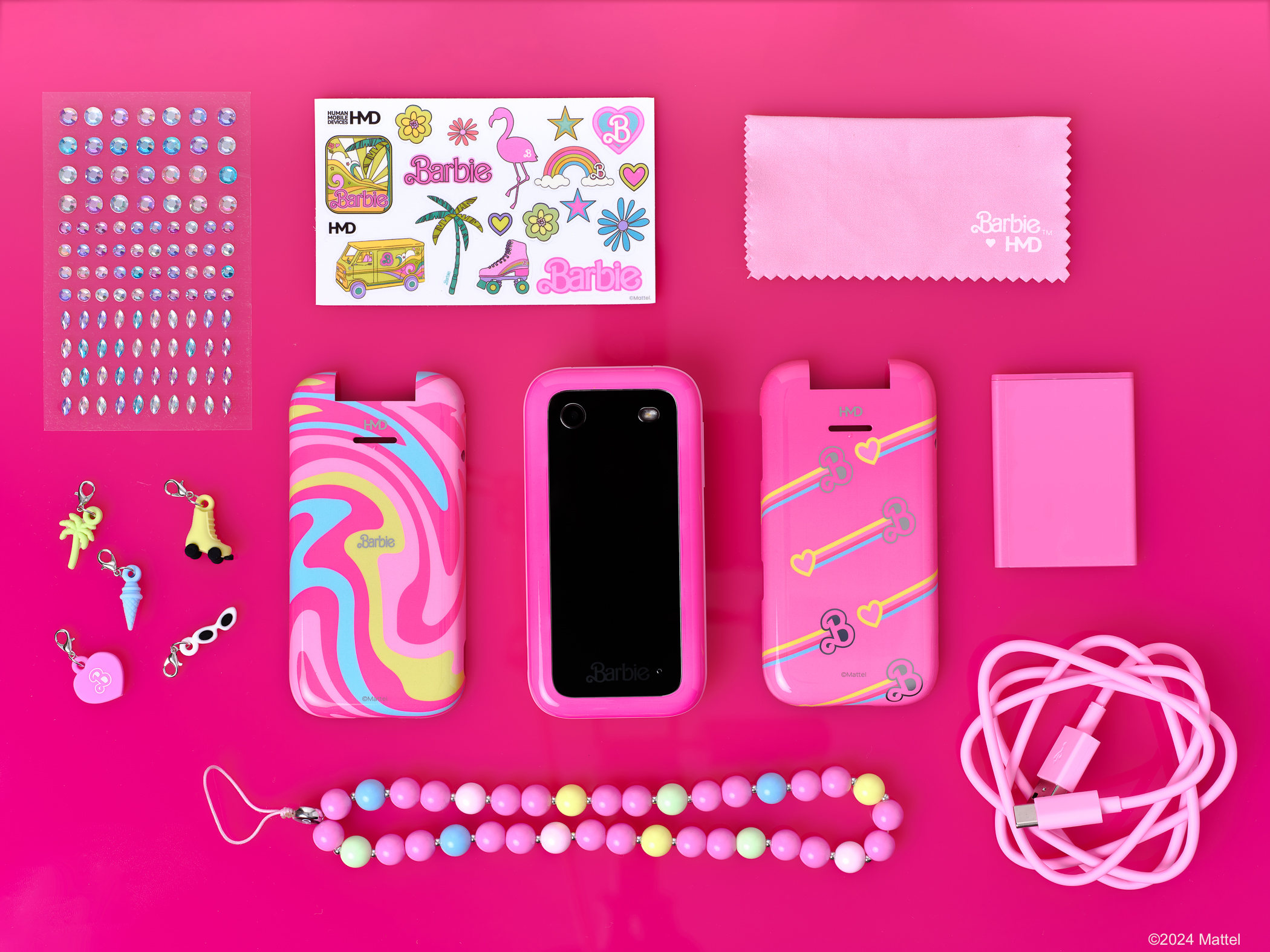
One senses a slight conflict contained within the Barbie Phone’s pastel pink casing. On the one hand, you have HMD, stewards of the Nokia brand and masters of the low-tech, high-retro flip and candy bar form factors. On the other hand, you have Mattel, a freshly reminted media juggernaut capable of depleting an entire country’s supply of pink paint, bringing Dream Houses to life and being awarded a celebratory Barbie exhibition at London’s Design Museum.
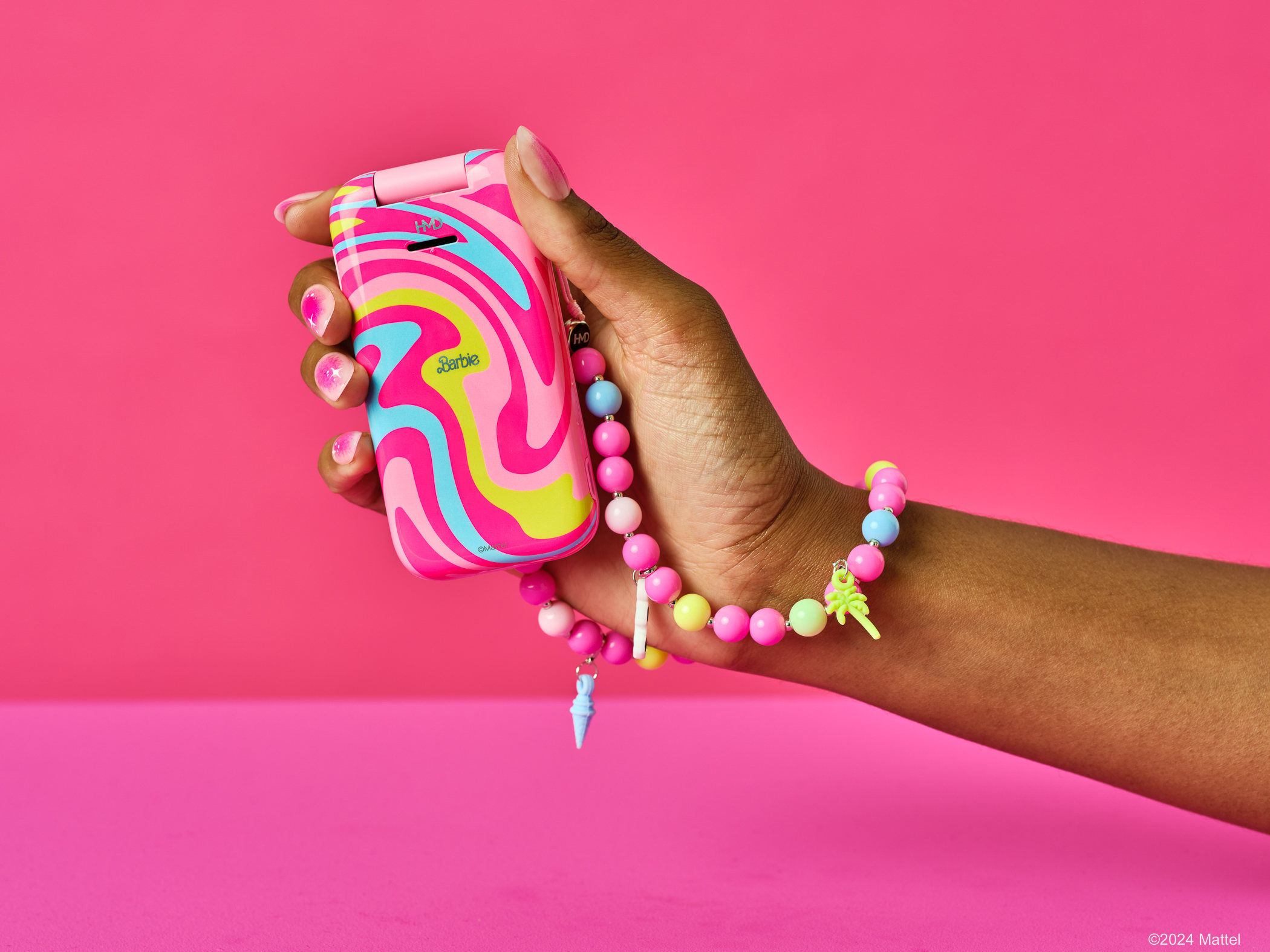
There’s a feeling that HMD’s ongoing research into phone use matters not one jot to the boardroom at Mattel, who have jumped on the chance to get a bright pink handset out to a fresh generation of future toy consumers. Perhaps we’re being too cynical. This device is, after all, meant to be fun. Just don’t forget to write that in neon pink with a capital ‘F’, exclamation mark, and perhaps a ™ as well.
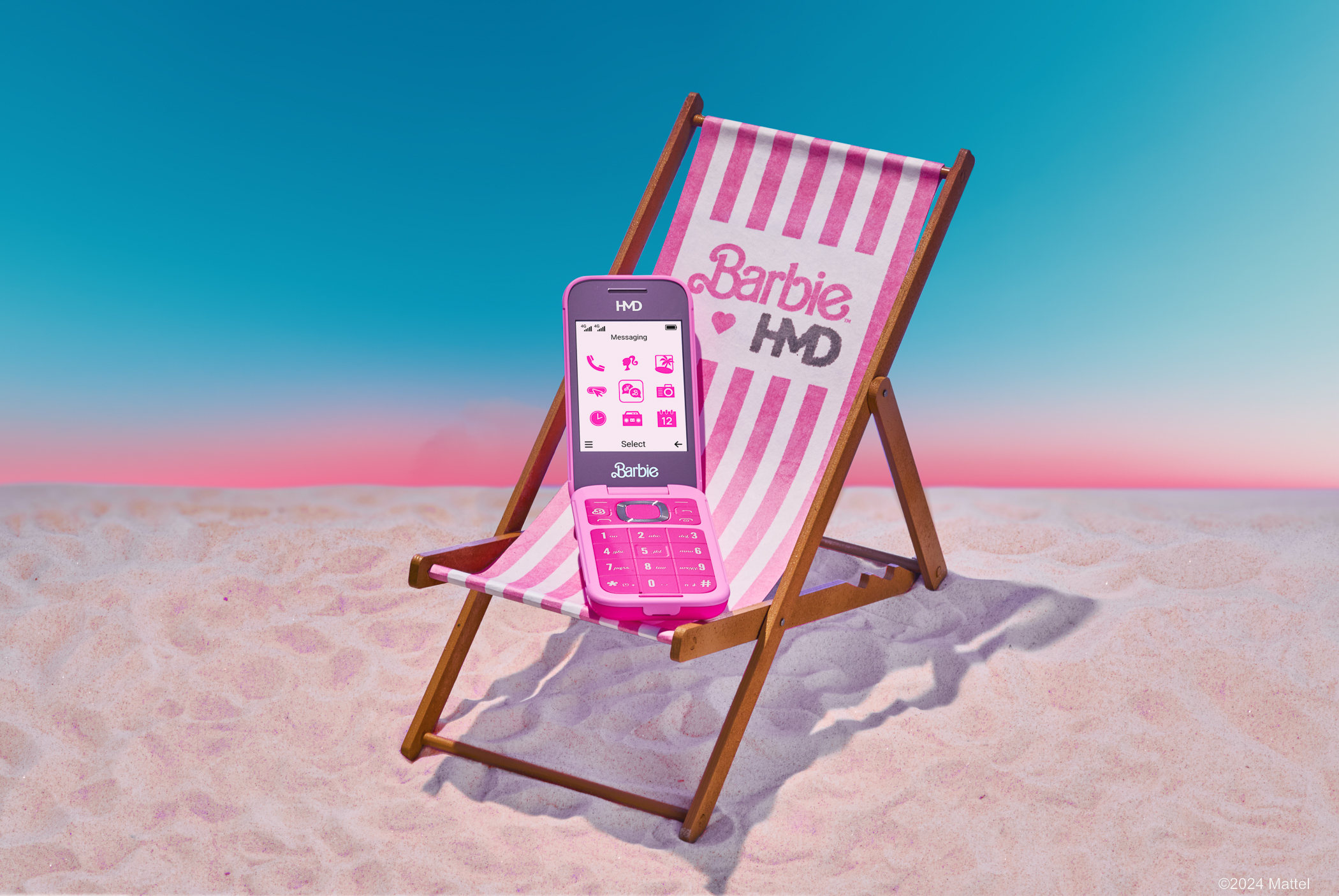
HMD Barbie™ Phone, £99, available from HMD.com, Mattel.com







